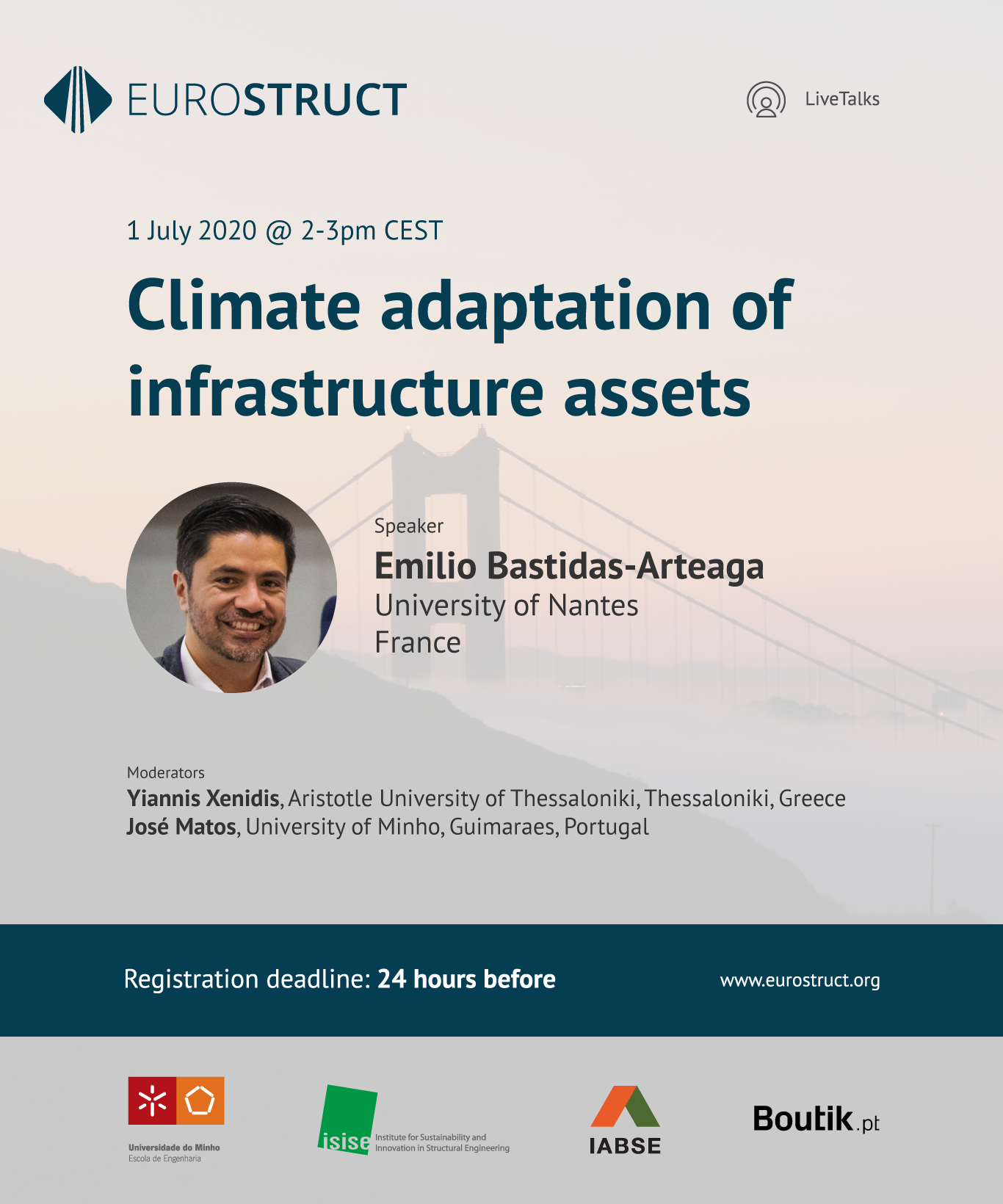
Emilio Bastidas-Arteaga received his BSc in Civil Engineering from The National University of Colombia in 2003 and his MSc in Structural Engineering from Los Andes University (Colombia) in 2005. Afterwards, he obtained a PhD in Civil Engineering from Los Andes University in 2009, a second PhD in Engineering Sciences from University of Nantes (France) in 2010, and an Accreditation to Supervise Research (HDR) from University of Nantes in 2017.
He is Associate Professor at University of Nantes since 2010 where he belongs to the Institute for Research in Civil and Mechanical Engineering (GeM). His research work aims at providing robust stochastic frameworks to optimise design, inspection and maintenance of ageing coastal and offshore structures. Since 2009, he has been working on the assessment of consequences and adaptation of infrastructure and buildings subjected to climate change within the framework of national and international collaborations and research projects. He has been and is also participating in several technical committees related to climate change and civil engineering: French Association for Normalisation (AFNOR, France), American Concrete Institute (ACI, USA), Joint Research Centre (JRC, Europe), and the International Association for Bridge and Structural Engineering (IABSE, International).
Abstract
Climate Adaptation of Infrastructure Assets
Infrastructure vulnerability could be affected by future weather patterns announced by climate change predictions. Since infrastructure assets are of primary importance for protecting human lives and providing fundamental societal and economical services, the adaptation of these infrastructure to new demands induced by climate changes becomes paramount for future sustainable development.
Within this framework, this talk poses the basis of a concept called ‘Climate Adaptation Engineering’ that aims to improve the response of built infrastructure to future potential climate change effects based on a rational risk-based decision support. The talk starts by introducing and reviewing basic concepts about climate change impacts and scenarios. This review justifies the introduction of a risk-based decision support that integrates climate and hazard, engineering, and fragility models, as well as economical decision tools to perform a comprehensive assessment of the cost-effectiveness of adaptation measures. This risk-based decision support will be illustrated with various study cases. The talk ends with a closing discussion on political, economic and social imperatives that affect the policy-making decision process when adapting infrastructure to climate change. .
This LiveTalk is available in YouTube.
If you wish to receive information about future events, please fill the available form here.
